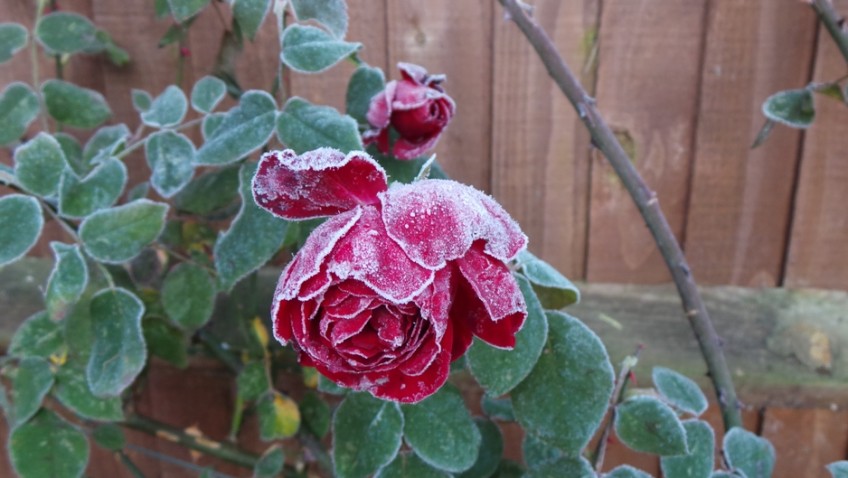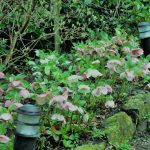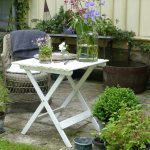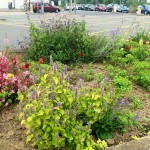Although the optimum time for planting bulbs has passed, it’s still perfectly fine to plant now – provided your ground isn’t frozen.
You might expect flowers to appear a bit later than it says on the packet, but you can buy bulbs now a cost of next to nothing and (as long as they are healthy and firm), the embryonic flowers are in there, raring to go!
Many people report problems with squirrels and possibly badgers digging up and eating their bulbs. There’s a very simple remedy. Just add a handful of holly leaves to each planting hole. The prickles are a great deterrent!
Tulips are a great bulb and we are only a little late for planting as they can go in considerably later than most. Did you know that there was a period of ‘tulip mania’ in the 1600s when enthusiasm for the new flower caused an economic frenzy?
This was one of the world’s first speculative bubbles and they became the most expensive flower in the world – selling for up to 10 times more than the annual income!
Perfect Plants currently has a Buy One, Get One Free offer on all spring flowering bulbs. Go to the website: www.perfectplants.co.uk to the Spring Bulbs section. You’ll need to put TWO PACKS into your basket and will be discounted at the checkout.
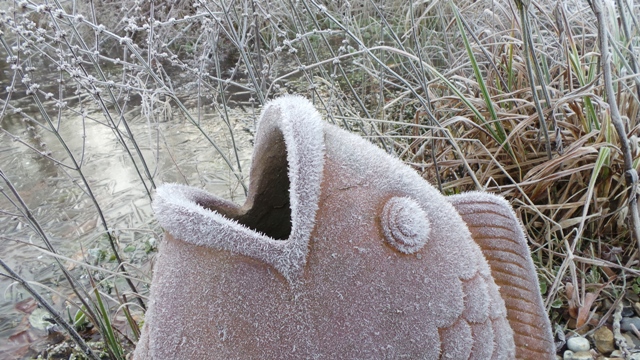 19.1.15: Feed your feathered friends
19.1.15: Feed your feathered friends
Think of wildlife during this chilly month. Wild birds appreciate quality seed; peanuts, fat balls and kitchen leftovers. Things to avoid, however, are dairy products (hard to digest), salt, and fat from cooked fowl (it greases their feathers).
Birds that enjoy snacking from feeders include sparrows, tits, finches and woodpeckers. Ground feeders include collared doves, blackbirds, dunnocks and wrens. Why not sign up for the RSPB Big Garden Birdwatch on 24-25 January. You can register here: https://www.rspb.org.uk/birdwatch/
Did you know that wrens sometimes sleep together at night in order to keep warm? 63 wrens were once found huddled together in a nest box! And some birds are not great nest-builders.
Collared doves, for example, sometimes lose their chicks through holes in their nests. Others just can’t resist feeding a hungry chick – robins have been seen looking after chicks belonging to other birds!
Perfect Plants is giving away FREE FAT BALLS with every order for wild bird-related goods including feeders and bird houses (until the end of January). Take a look at the Wildlife section of the website : www.perfectplants.co.uk
26.1.15: Watch wildlife in winter
Winter is a brilliant time to watch wildlife because there’s less undergrowth and foliage to obscure the view. Don’t allow the perceived ‘negative’ image of the season to cloud your vision. What mammals can you expect to see?
Badgers, foxes, deer, rabbits, mice, rats, squirrels, voles and shrews are probably the creatures that you see most often, but you might also be lucky enough to spot the occasional hedgehog (if the weather is mild), hare, weasel, stoat or mink.
If you are supremely fortuitous you might see water voles, pine martens and otters, but probably not the tiny dormouse which will be snoozing until spring. It has been confirmed that there are now free-living populations of wild boar and late January is the season for the birth of their offspring.
So if you happen to walk your dogs in woodland where wild boar are known to roam it would be prudent to be cautious. Although wild boar are not likely to attack humans they might defend their young when confronted by a curious canine.
There are actually 24 native land mammal species living in the UK today including European Beavers and polecats.
Even common wild mammals are fascinating once you begin to study them. Take deer, for example. There are thought to be more than 2m in the whole of the UK and six different species, only two of which are native – red deer and roe deer. Non-natives include fallow deer, muntjac, Chinese water deer and sika deer. How to identify them? Take a look at The British Deer Society website: www.bds.org.uk.
2.2.15: Spring is in the air
Yes, spring really is on the way.
- You can chit seed potatoes now. This basically means that you allow shoots to form by putting them in a light, cool, frost-free place.
- Last chance to plant bare-rooted raspberries. Prune them to about 25cm tall after planting if they are summer-fruiting, or prune autumn-fruiting canes down to ground level.
- Look at hellebores! New growth will be shooting and you will soon be admiring those beautiful flowers.
- Check that outdoor containers are damp. Water them regularly, particularly if they are sheltered by porches or house eaves.
- Put up your bird boxes! Birds will shortly be choosing mates and building nests ready for the season and they will appreciate a cosy home.
Tips provided by Perfect Plants Ltd: The online garden store: www.perfectplants.co.uk.

